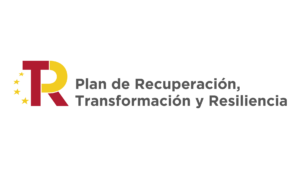Family Therapy in Santa Pola
PSYCHOLOGY CONSULTATION IN SANTA POLA
Family therapy is a procedure that aims to address conflicting issues between family members. It is a therapeutic modality that focuses on the family as an object of intervention in order to offer resources and strengthen it. Through this type of treatment, an attempt is made to involve two or more members of a family with the aim of observing and modifying, when necessary, patterns of interaction between family members. According to the systemic current, the family is understood as a system. It is a set of elements whose sum provides a greater result than the addition of each of the members separately.

From this perspective, the behavior of one of the family members cannot be understood or explained outside the system. Systemic therapy does not aim to address the problem directly, but by modifying the family dynamics that maintain it.
Indices to go to family therapy:
- Family crises (complicated situations or those related to the life cycle): birth of a child, emancipation, death, etc.)
- Behavioral problems or mental disorders of one of the family members.
- addiction treatment: In the treatment of various addictions, it can be effective to involve the closest relatives, in order to help the person to stay away from the stimuli that favor the consumption response.
- Parent Training: Parents are provided with means to deal with their children's maladaptive behaviors, through modeling and positive reinforcement.
How does the Psychologist approach Family Therapy in consultation?
Normally during the first session each member of the family presents their point of view about the problem or situation they are experiencing. In addition, when the professional considers that the moment is opportune, he asks each member of the family to express her complaints freely. The psychologist will take the opportunity to stay on the sidelines during periods of time in each session in order to be able to observe how the family relates and interacts (way of communicating, non-verbal communication, who acts as leader, links established within the system, etc.).
Once the professional has analyzed the family and is aware of the type of relationship they maintain, as well as their difficulties, action therapies begin to be developed. Through exercises and activities relationships and existing roles are worked on, with the aim of improve the family nucleus. The aim is to reach a point of common understanding, in which they are able to put themselves in the other's place from empathy and understanding, jointly solving the problems that arise.
Psychological techniques in Family Therapy:
- Positive redefinition of the problem: Through this technique, an attempt is made to give the negative situation a different reading. The objective is to question the vision of family members on the problem and try to see the situation from another perspective.
- Miracle question: Through this technique, the family is asked what things would change in their daily life if the problem were suddenly solved. Based on their answers, the professional obtains clues about aspects that must be incorporated into the family so that what they want ends up being fulfilled. It is also good to ask about what they did on those occasions when things went well, in order to divert attention from the negative and incorporate behaviors that have worked in the past.
- Scale questions: Each family member is asked to give a score (from 0 to 10) to their problem. In this way, the professional can inquire about what it would take to decrease one point on the scale, or if the score is high, what did the person do so that it did not increase further.
- Circular questions: A family member is asked to answer what another family member (present at the consultation) does, thinks and/or feels about whom we want to know something. In this way, an interrelated vision of the problematic situation is obtained and makes it possible for unknown information to appear, as well as new points of view.





